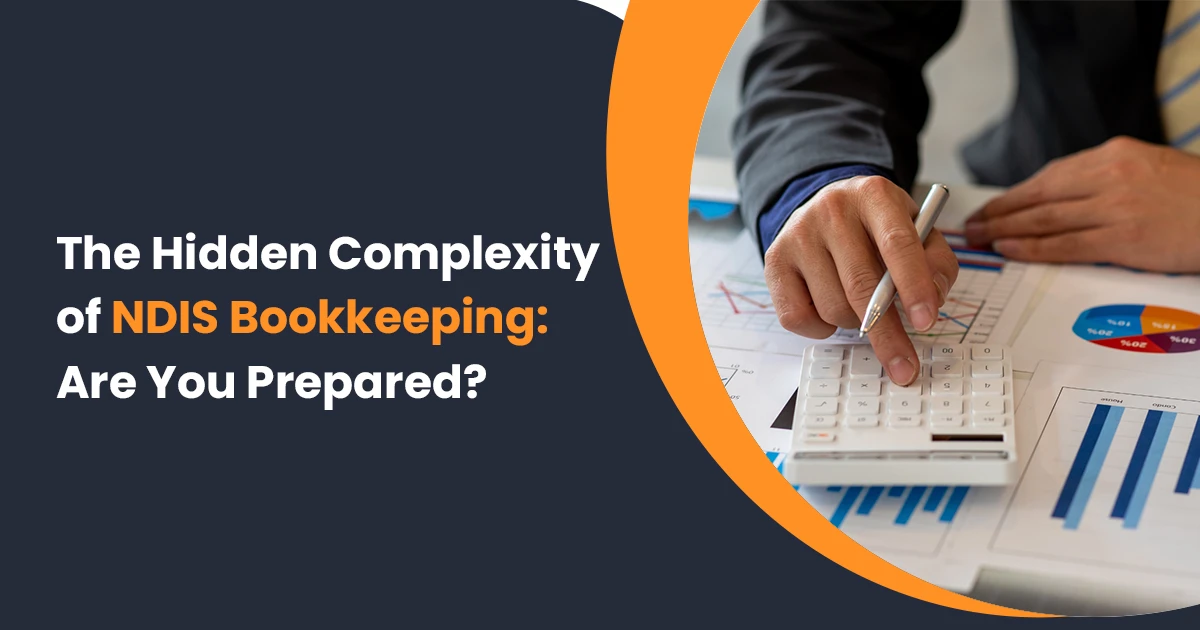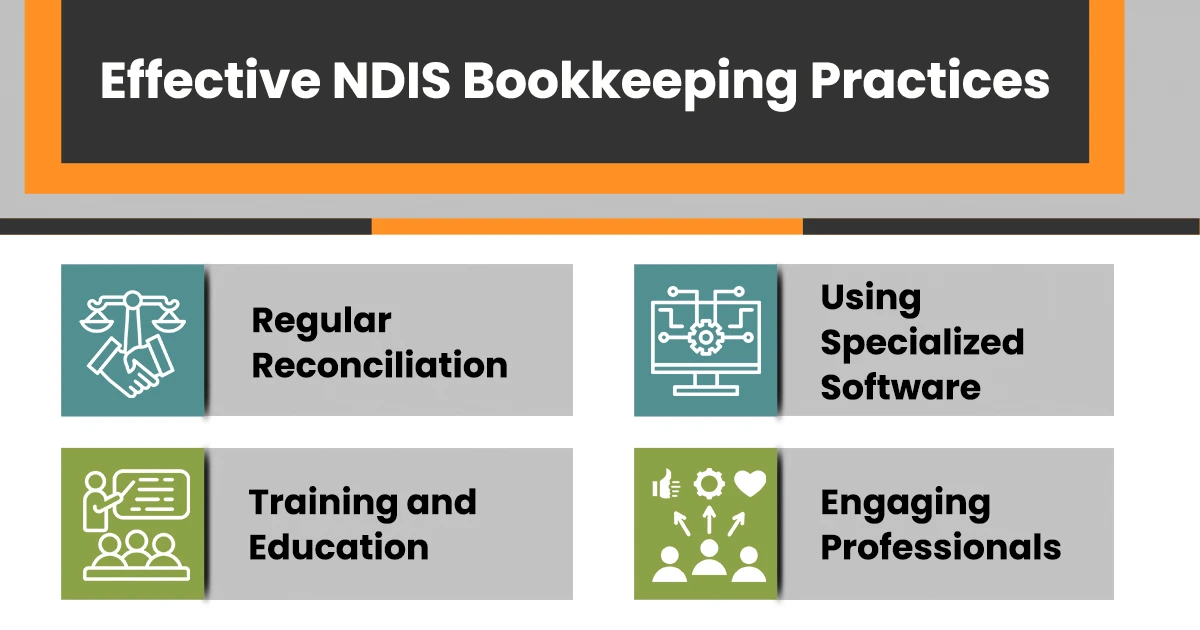
Bookkeeping for the National Disability Insurance Scheme (NDIS) is not just about keeping records. It’s about navigating a maze of regulations, funding models, and compliance requirements that can easily overwhelm the unprepared. As an NDIS provider, understanding the intricacies of NDIS bookkeeping is crucial for maintaining financial health and ensuring regulatory compliance. This article aims to shed light on the hidden complexities of NDIS bookkeeping and how Priority1 Bookkeeping can help you navigate these challenges.
NDIS bookkeeping involves managing the financial transactions and records specific to NDIS-funded services. This includes tracking funding, processing claims, managing payroll, and ensuring compliance with NDIS guidelines. Accurate bookkeeping is essential for NDIS providers to maintain transparency, manage resources efficiently, and meet the stringent reporting requirements set by the NDIS.
One of the major challenges in NDIS bookkeeping is the complexity of funding models. NDIS funding is individualised, meaning each participant has a unique plan and budget. This requires meticulous tracking and allocation of funds to ensure each participant’s needs are met.
NDIS providers often offer a range of services, from therapy and nursing care to equipment and support services. Keeping track of the financial aspects of these diverse services can be daunting. It involves managing multiple income streams, expenses, and ensuring that each service is accounted for correctly. An NDIS accountant can help streamline this process, ensuring accurate financial management and compliance with NDIS guidelines.
NDIS providers are subject to regular audits to ensure compliance with NDIS standards. These audits require precise and accurate financial records. Any discrepancies can lead to penalties, loss of funding, or other serious consequences. Ensuring that your bookkeeping is audit-ready at all times is a significant challenge.
Simple data entry errors can have significant repercussions in NDIS bookkeeping. Incorrect data can lead to inaccurate financial statements, which can affect funding and compliance. Double-checking entries and using automated tools can help minimise these errors.
Misclassifying expenses is a common mistake that can lead to compliance issues. It is crucial to categorise expenses correctly to ensure that funds are being used appropriately and reported accurately.
Maintaining detailed and organised records is essential for NDIS bookkeeping. Inadequate record-keeping can lead to difficulties during audits and compliance checks. It is important to keep comprehensive records of all financial transactions, including receipts, invoices, and funding allocations.
Missing out on claims and reimbursements can result in lost revenue for NDIS providers. It is essential to track all claims and follow up on any unpaid or delayed reimbursements to ensure that your organisation receives all entitled funds.

Regular reconciliation of bank and account statements is crucial for accurate bookkeeping. This ensures that all transactions are recorded correctly and helps identify any discrepancies early on.
Utilizing NDIS-specific bookkeeping software can streamline the bookkeeping process. These software solutions are designed to handle the unique requirements of NDIS funding and compliance, making it easier to manage finances accurately.
Continuous training and education for bookkeeping staff are vital to keep up with the latest NDIS regulations and best practices. Ensuring that your team is well-informed can help avoid common mistakes and improve the overall accuracy of your bookkeeping.
Consider hiring professional NDIS bookkeepers like Priority1 Bookkeeping. Our team of experts understands the complexities of NDIS bookkeeping and can help ensure that your financial records are accurate and compliant.
Investing in bookkeeping software tailored for NDIS providers can significantly enhance the accuracy and efficiency of your bookkeeping processes. Popular options include MYOB, Xero, and QuickBooks, which offer features designed specifically for NDIS funding management.
Several online resources and courses are available to help NDIS providers improve their bookkeeping practices. Websites like the NDIS portal and financial management courses can provide valuable insights and tools.
Utilising templates and checklists can help streamline your bookkeeping processes. These tools ensure that all necessary steps are followed and that no critical tasks are overlooked.
The NDIS landscape is continuously evolving, with new regulations and guidelines being introduced regularly. Staying updated with these changes and adapting your bookkeeping practices accordingly is crucial for ongoing compliance.
As your business grows, your bookkeeping needs will also expand. Implementing scalable bookkeeping practices from the outset can help accommodate this growth and ensure that your financial management remains efficient.
Regularly reviewing and improving your bookkeeping processes is essential for maintaining accuracy and compliance. This includes conducting internal audits, seeking feedback from your team, and staying informed about industry best practices.
NDIS bookkeeping is undoubtedly complex, but with the right knowledge, tools, and support, you can navigate these challenges effectively. By understanding the unique aspects of NDIS bookkeeping, avoiding common mistakes, and implementing best practices, you can ensure that your financial management is robust and compliant. You can avail Brisbane bookkeeping services for your business. Their services include specialised bookkeeping to ensure accurate and compliant financial management for NDIS participants and providers.
Priority1 Bookkeeping is here to help you manage the intricacies of NDIS bookkeeping. Our team of experts specialises in NDIS financial management, providing you with the support you need to focus on delivering quality services to your clients. Visit our website at Priority1 Bookkeeping to learn more about our services and how we can assist you in achieving financial success.
Stay updated with expert bookkeeping tips and insights! Subscribe now to receive updates directly in your inbox for your business.
* We never spam your email
38B Douglas Street, Milton QLD, 4064 Australia
Monday - Friday 09:30 AM - 05:30 PM
© 2025 All Rights Reserved.